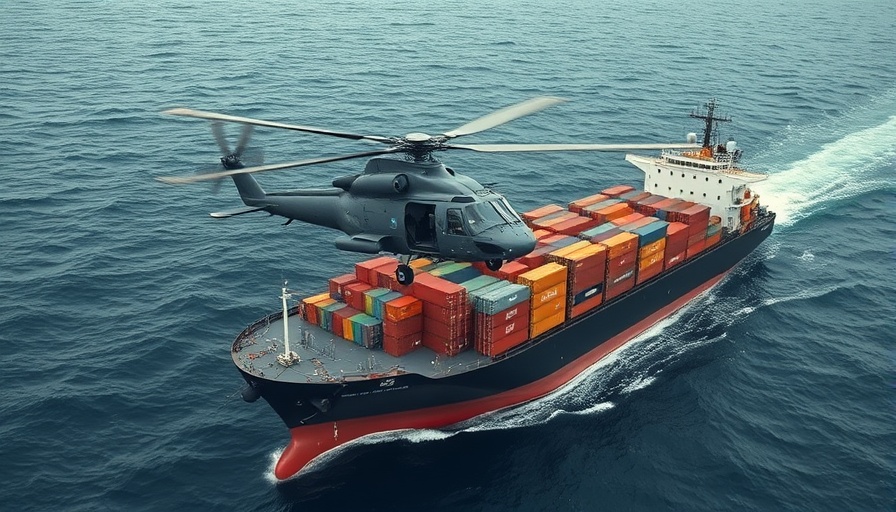
Shipping on High Alert: Implications of U.S. Strikes in Iran
In a turbulent geopolitical landscape, U.S. airstrikes against Iran's nuclear facilities have sent shockwaves through the shipping industry, particularly in the strategic region around the Strait of Hormuz. On Sunday, shipping authorities raised alarms, urging vessel owners to reconsider entering the Persian Gulf as Tehran could retaliate against commercial ships.
Strait of Hormuz: A Key Maritime Route
The Strait of Hormuz is crucial for global oil transportation, with approximately 20% of the world's oil passing through this narrow waterway. The recent U.S. actions have heightened concerns about potential dangers for ships, particularly those linked to U.S. interests. Greece, whose shipping fleet is among the world's largest, has advised its shipowners to exercise caution, suggesting they reassess their plans to navigate these waters until the situation stabilizes.
Economic Impacts: Rising Shipping Costs
As tensions escalate, shipping rates have surged almost 90% since mid-June when Israel commenced airstrikes on Iran, raising fears of further instability. The Greek shipping ministry's warnings are a reflection of broader pressures on the maritime industry, which is acutely sensitive to geopolitical events.
As shipowners grapple with these developments, many are facing tough decisions. Some might choose to continue operating in the Persian Gulf, as increased earnings could offset the heightened risks involved. However, others are likely to err on the side of caution, opting to keep their vessels in safer ports until the situation normalizes.
Heightened Risk: Threats from Yemeni Rebels
The situation is compounded by renewed threats from Yemen’s Houthi rebels, who have issued warnings against U.S. naval and commercial vessels. Following a temporary ceasefire, these new threats raise the stakes for shipping in both the Red Sea and the Gulf of Aden, further complicating maritime operations in the region. According to the Joint Maritime Information Center, any U.S.-linked ships should consider rerouting to mitigate risks.
Global Maritime Stakeholders React
International naval forces are also adapting their threat assessments. The European Union's naval task force has increased its alert level in response to the evolving situation, underscoring the urgency of safeguarding maritime interests amidst potential Iranian reprisals.
The Future of Shipping in a Volatile Landscape
As these developments unfold, the question remains: how will the shipping industry adapt to these challenges? While some shipowners may take the spotlight as they navigate the complexities of high-risk areas, the broader implications of this scenario will resonate through global commodity markets. The stakes are high, and the maritime industry's actions will be pivotal in shaping the future of shipping in these waters.
For residents of Pennsylvania and beyond, this situation serves as a reminder of how distant geopolitical events can have direct ramifications on global economics, trade, and even the price of goods we depend on daily. Staying informed and understanding these dynamics is essential, not just for industry professionals but for consumers everywhere.
Conclusion: Stay Informed and Prepared
The recent U.S. strikes on Iran illustrate not just the volatility in international relations but the intricate web of consequences that ripple through global markets. As the situation evolves, individuals and businesses alike should remain vigilant and consider how these developments may affect their economic landscape. Understanding the shifting tides of maritime operations is crucial as we navigate these ever-changing waters.
 Add Row
Add Row  Add
Add 




 Add Row
Add Row  Add
Add 

Write A Comment